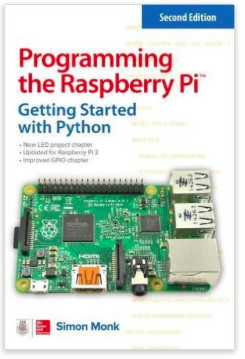
The PiCAN2, a CAN (Controller Area Network) Bus Interface for the Raspberry Pi 2 and 3, is the most successful product in our web store.
It uses the Microchip MCP2515 CAN controller with MCP2551 CAN transceiver. Connection are made via DB9 (for direct ODB-II connection) or 3-way screw terminal.
There is an easy-to-install SocketCAN driver, and programming can be accomplished in C or Python to suit your CAN Bus, SAE J1939, or OBD-II application. There are plenty of documentation and programming samples available for download.
Features
- CAN v2.0 A/B at 1 Mb/s
- High speed SPI Interface (10 MHz)
- Standard and extended data and remote frames
- CAN connection via standard 9-way sub-D connector or screw terminal
- Compatible with OBDII cable
- Solder bridge to set different configuration for DB9 connector
- 120Ω termination resistor
- Serial LCD ready
- LED indicator
- Foot print for two mini push buttons
- Four fixing holes, comply with Pi Hat standard
- SocketCAN driver, appears as can0 to application
- Interrupt RX on GPIO25
For more information, log on to our web store.
In addition, there are further variants of the board:
The PiCAN2 with SMPS (Switch-Mode Power Supply) provides an extended power supply range from 6 to 30 VDC to satisfy industrial and automotive requirements. The SMPS option will power the CPU board plus the CVAN Bus interface through a terminal connection.
The PiCAN2 DUO CAN Bus Board contains two CAN bus channels, which are both software and hardware compatible with the basic version, the only difference being that the code has to refer to either CAN Bus interface #1 or #2.
The PiCAN2 DUO CAN Bus Board with SMPS contains two CAN bus channels. It provides an extended power supply range from 6 to 30 VDC to satisfy industrial and automotive requirements. The SMPS option will power the CPU board plus the CVAN Bus interface through a terminal connection.
The PiCAN2 DUO Isolated CAN Bus Board board provides two optically isolated CAN-Bus channels.
Programming the Raspberry Pi – Getting Started with Python
- Updated for Raspberry Pi 2
- Set up your Raspberry Pi and explore its features
- Navigate files, folders, and menus
- Write Python programs using the IDLE editor
- Use strings, lists, functions, and dictionaries
- Work with modules, classes, and methods
- Create user-friendly games using Pygame
- Build intuitive user interfaces with Tkinter
- Attach external electronics through the GPIO port
- Add powerful Web features to your projects





